
Piano Technicians Guild: North Shore & Chicago
Booth: 604
Showcase Schedule:
PRESS RELEASE: 23 APRIL 2025
The Frances Clark Center is pleased to announce the selected proposals for our Collegiate Connections events:
Victoria Barnette, Ryan Kee, Yuxiang Zhang
University of Missouri; Curtis Pavey, faculty mentor
Janna Peña, Ayunia Saputro, Mira Walker
University of Michigan; Paola Savvidou, faculty mentor
Lynnae Hurst, Katrina Kahlhamer, Samuel E. Pang
University of Oklahoma; Sara Ernst, faculty mentor
From Doctoral Student to Clinician: Masterclassing as Career Preparation for Young Professionals
Aidan Hedrick, Maxwell Hinton, Tse-Rung Huang, Lynn Worcester Jones, HaEun Kim, Qi Liang, Yuqi Shi, Zicong Su, Andrew Villemez, Rena Wu, Liming Yang
University of Cincinnati College-Conservatory of Music; Lynn Worcester Jones, faculty mentor
From Overwhelmed to Empowered: Avoiding Teacher Burnout
Claire Kim, Adèle LeBlanc, Carlie Toliver, Michelle Wijaya
Southern Methodist University; Catharine Lysinger, faculty mentor
Grooving to the Beat: Mastering Counting with Metronome Fun! (Vol.2)
Mi Sun Cheong, Boyoon Choi, Sangsoo Kim
University of North Texas; Oscar Macchioni, faculty mentor
Teaching Beginner Piano Students to Read Modern Notation: A Case Study of George Crumb’s Makrokosmos I
Xinyue Gu, Miao Ma
University of Kansas; Yiyang Chen, faculty mentor
Palm Beach Atlantic University; Jackie Yong
Southern Methodist University; Catharine Lysinger
State University of Maringá; John Kennedy Pereira de Castro
Universidade Federal de Juiz de Fora; Fernando Santana
University of Cincinnati, College-Conservatory of Music; Lynn Worcester Jones
University of Kansas; Yiyang Chen
University of Michigan; Paola Savvidou
University of Michigan; Christopher Harding
University of Missouri; Curtis Pavey
University of North Texas; Oscar Macchioni
University of Oklahoma; Sara Ernst
University of Oregon; Grace Ho
Utah Valley University; Carmen Hall
West Virginia University; Peter Amstutz
We look forward to highlighting the outstanding work of pedagogy and collegiate groups and to foster global community engagement among our collegiate cohorts and faculty. Register today to attend the event!
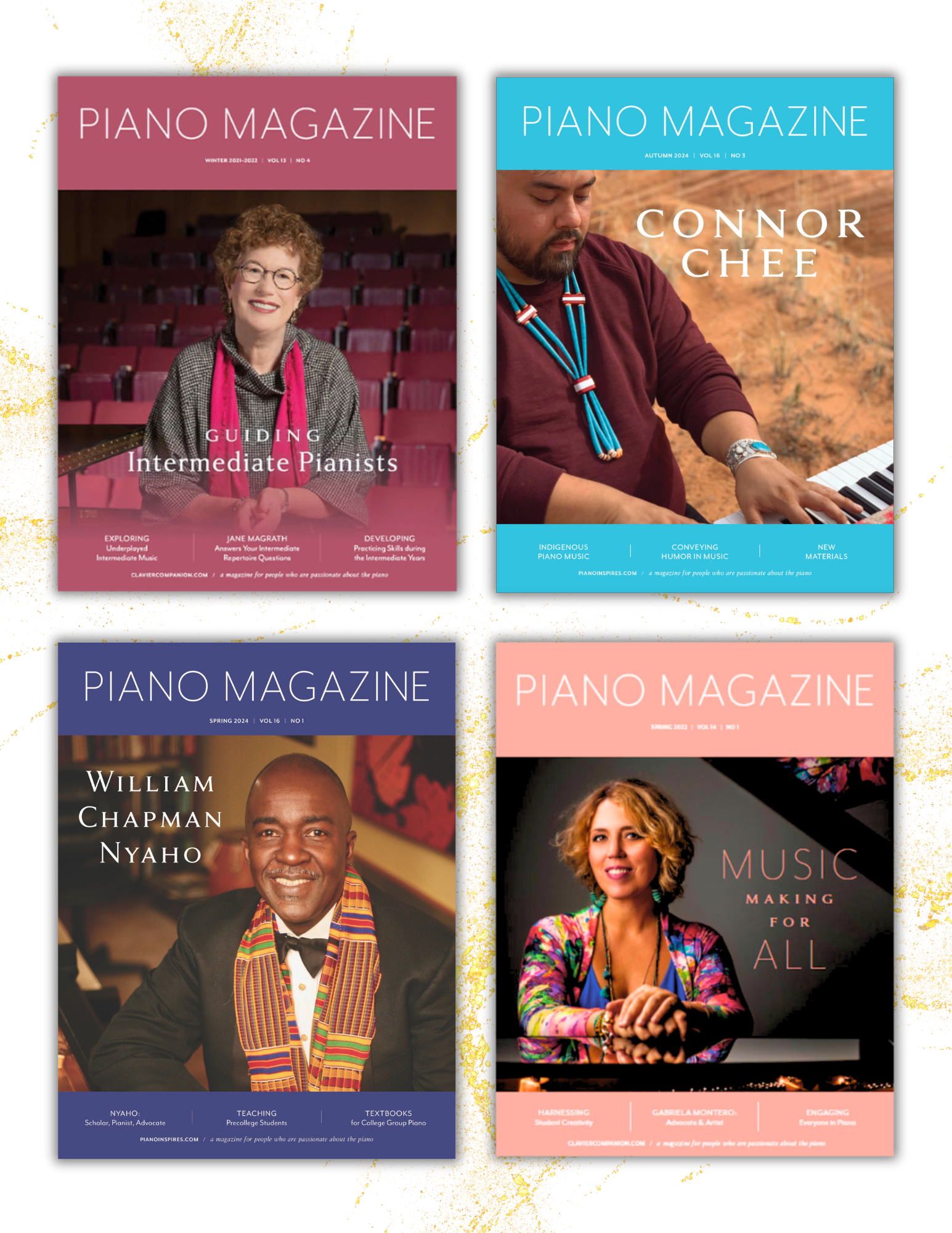
A quarterly magazine for professional pianists and teachers.
Regular Pricing:
Digital: $3/month
Print + Digital: $4/month

A quarterly magazine for piano students.
Regular Pricing: 1-4 subscriptions
Digital: $2.08/month each
Print + Digital: $2.49/month each
Regular Pricing: 5+ subscriptions
Digital: $1.67/month each
Print + Digital: $2.08/month each
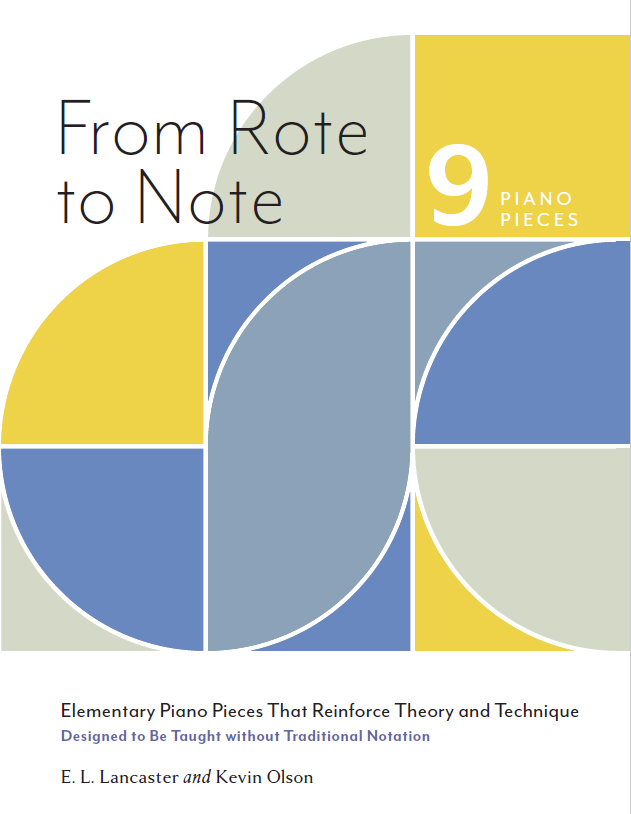
Regular: $11.99
Conference Price: $9.59
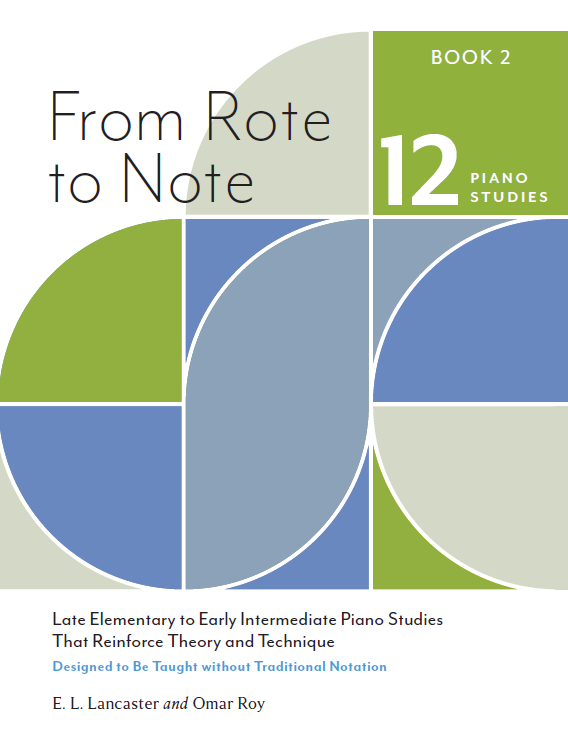
Regular: $15.99
Conference Price: $12.79
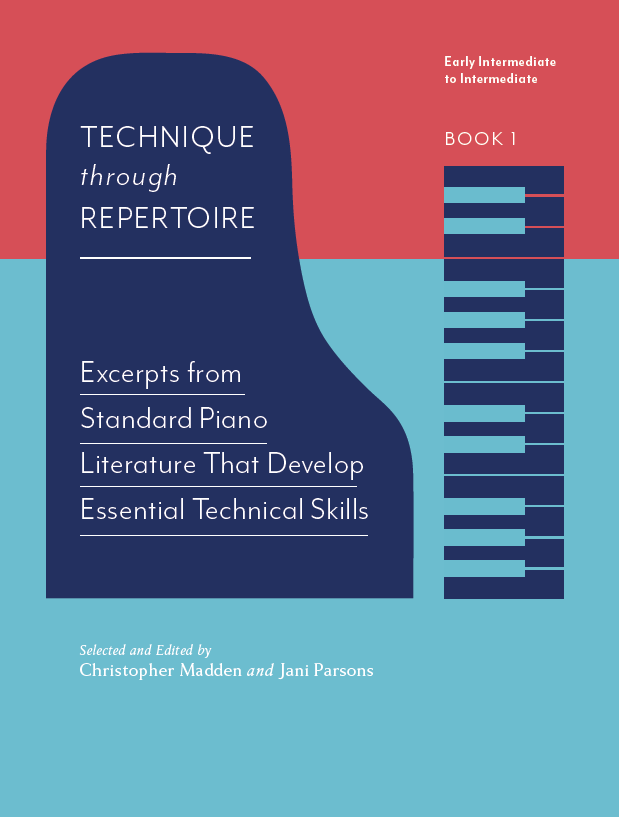
Regular: $11.99
Conference Price: $9.59
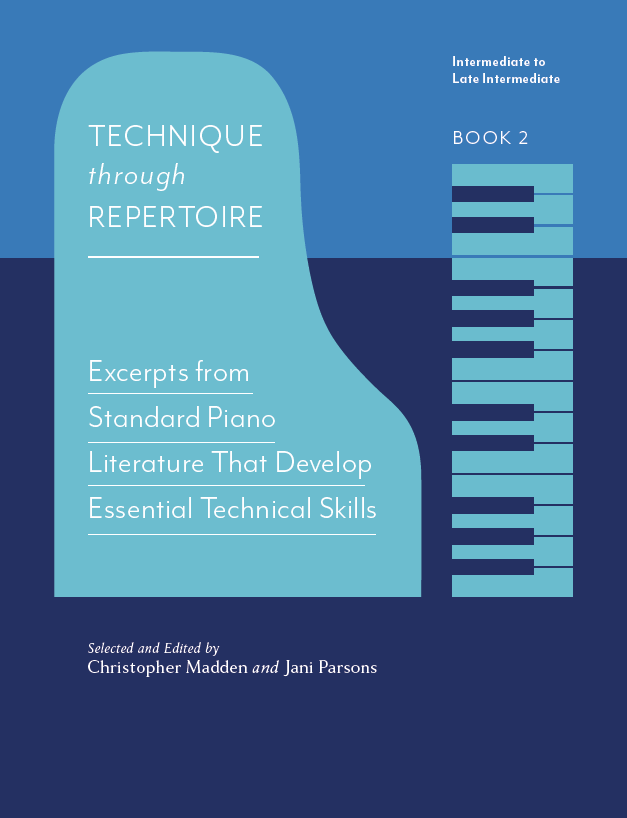
Regular: $13.99
Conference Price: $11.19
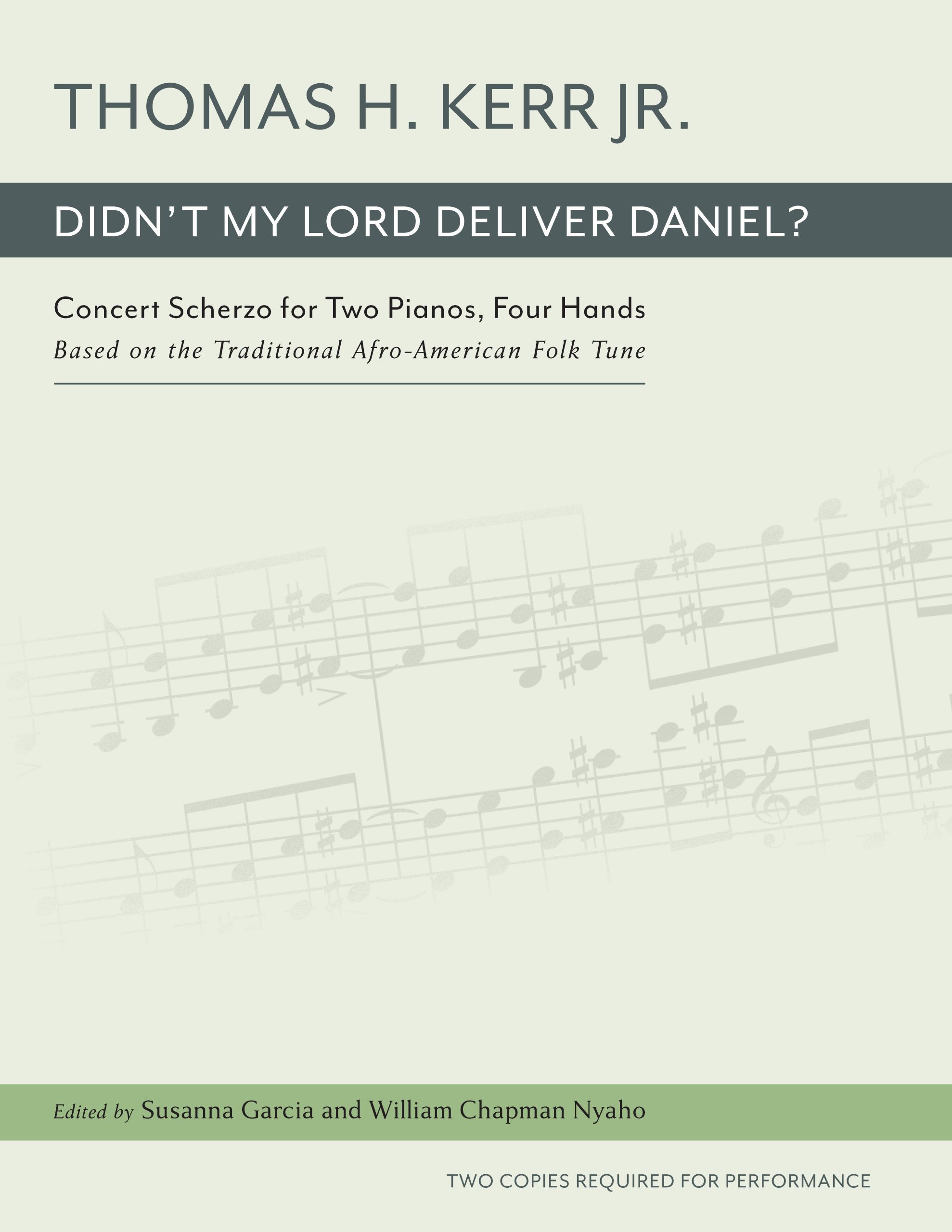
Regular: $19.99 each
Conference Price: $15.99 each
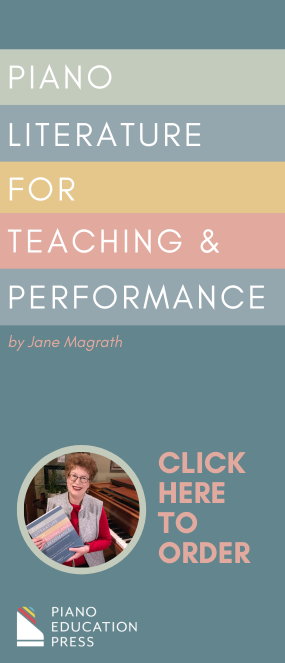
Regular: $59.99
Conference Price: $48.00
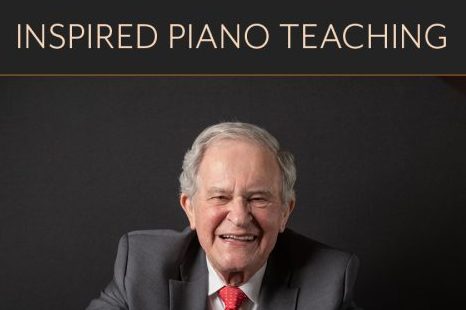
Regular: $49.99
Conference Price: $39.99
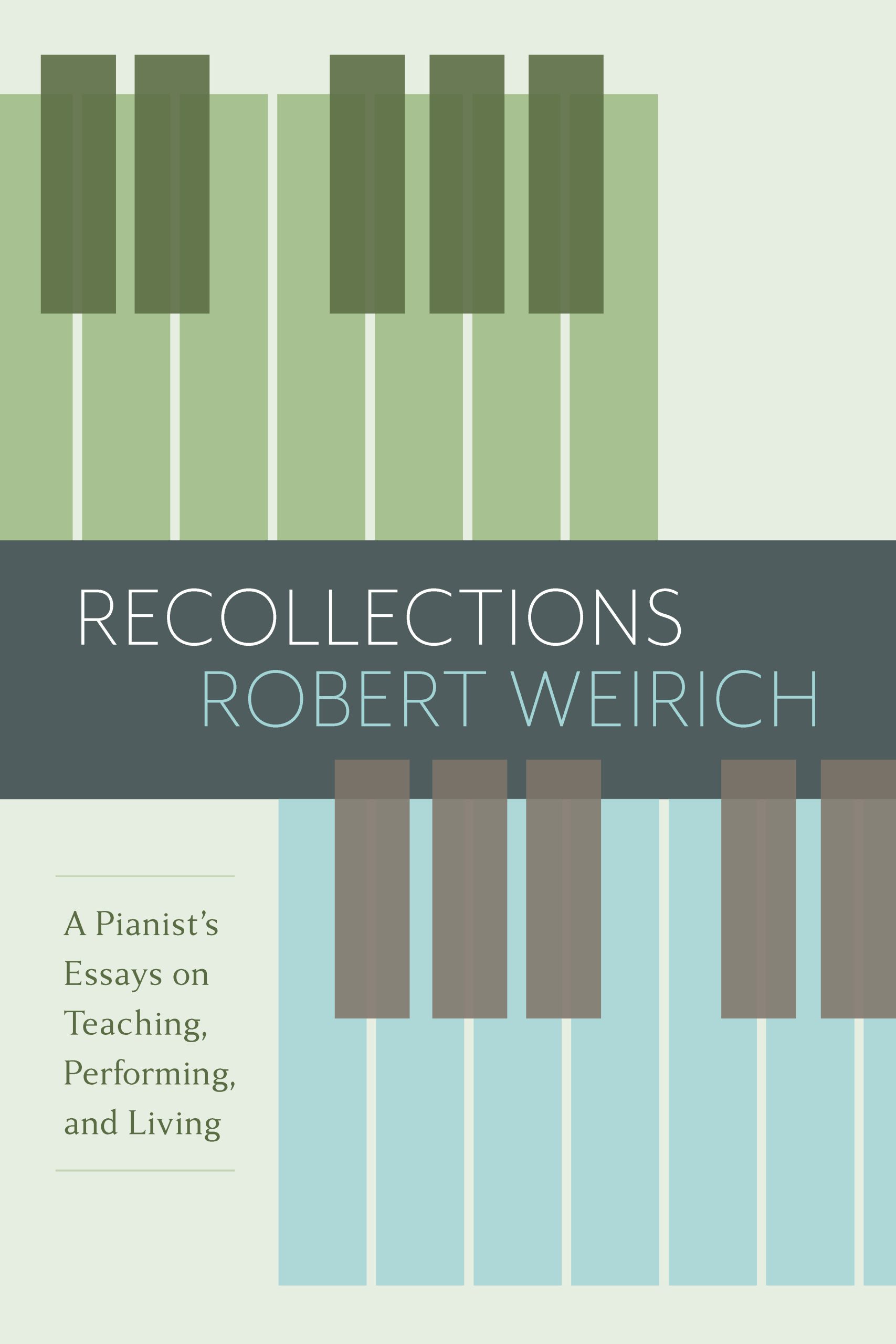
Regular: $39.99
Conference Price: $31.99
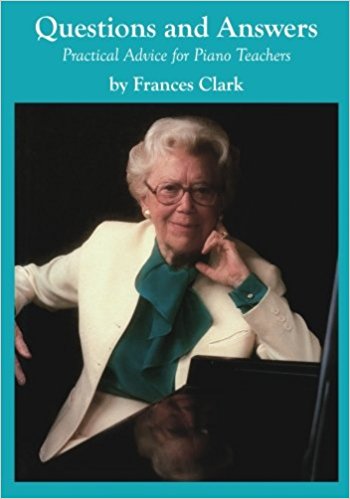
Regular Price: $35.00
Conference Price: $28.00
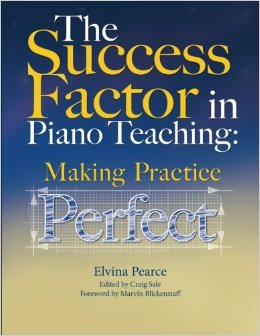
Regular Price: $35.00
Conference Price: $28.00
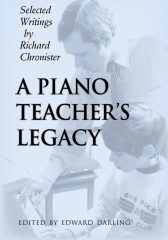
Regular Price: $35.00
Conference Price: $28.00

Regular: $79

Regular: $129

Regular: $79

Regular: $77

Regular: $79

Regular: $79

Regular: $79

Regular: $79

Regular: $49

Regular: $129

Regular: $129

Regular: $129

Regular: $79

from Hidden Gems: Four Centuries of Piano Music by Women Composers

from Hidden Gems: Four Centuries of Piano Music by Women Composers

from Hidden Gems: Four Centuries of Piano Music by Women Composers

Microcourse Only

from A Pianist’s Guide to Studio Management

from The Beginner Course

from Unsung Heroes in Piano Pedagogy: 20 Pieces by Black Composers to Use in Your Studio Now

from The Beginner Course

Microcourse only

from The Beginner Course

from The Beginner Course

from A Pianist’s Guide to Studio Management

from Unsung Heroes in Piano Pedagogy: 20 Pieces by Black Composers to Use in Your Studio Now

rom Unsung Heroes in Piano Pedagogy: 20 Pieces by Black Composers to Use in Your Studio Now

Microcourse Only

from The Beginner Course

from Hidden Gems: Four Centuries of Piano Music by Women Composers

Microcourse Only

Microcourse Only

from a Pianist’s Guide to Teaching in Groups

from A Pianist’s Guide to Teaching in Groups

from A Pianist’s Guide to Teaching in Groups

from The Beginner Course

from The Beginner Course

from The Beginner Course

Microcourse Only

from The Beginner Course

Micrcourse Only

from A Pianist’s Guide to Teaching in Groups
Purpose
The purpose of this SMS Communication Policy is to inform customers of The Frances Clark Center about our practices regarding SMS (Short Message Service) communications. We aim to provide valuable updates and information while respecting your privacy and preferences.
Policy Overview
1. Consent
– By providing your mobile number and opting into our SMS program, you consent to receive SMS communications from The Frances Clark Center. Consent can be revoked at any time.
2. Types of Messages
– SMS messages may include:
– Important updates regarding our programs and services.
– Event notifications and reminders.
– Donation requests and fundraising campaigns.
3. Frequency of Messages
– We strive to limit our SMS communications to 2 messages per month. However, you may receive more messages during significant events or sales.
4. Opt-Out Procedure
– You can opt-out of receiving SMS communications at any time by replying “STOP” to any message you receive. You will receive a confirmation that you have been unsubscribed, and no further messages will be sent.
5. Privacy and Security
– Your privacy is important to us. We will not share your personal information with third parties without your explicit consent. We comply with all local and national laws. Your phone number will be stored securely and only accessible to authorized personnel.
7. Message Charges
– Standard message and data rates may apply based on your mobile plan. Please check with your mobile provider for details.
8. Feedback and Support
– We welcome your feedback! If you have questions or concerns about our SMS communications, please contact us at info@francesclarkcenter.org.
Agreement
By opting into our SMS program, you acknowledge that you have read and understood this policy. Your participation helps us keep you informed and engaged with The Frances Clark Center.
Booth: 101
Promo Code: NCKP2025
10% off subscriptions and single issues until 8/5/2025.
Giveaway: Enter our daily raffle at the booth for a chance to win a one-year subscription to our interactive piano curriculum.
Booth Schedule:
4:00pm on July 28th: Meet the editors!
11:00am on July 29th: Giveaway winner announced
Published in Piano Magazine, Summer 2024 Issue

Leadership is a term that is frequently used. A quick google search reveals a range of characteristics, terminology, and definitions of success. The truth of effective leadership lies in the person—an individual who impacts a profession, motivates and inspires, builds community, navigates change, directs through crisis, builds connections, and creates new paths and resources for the future. In our field, Dr. Gary Ingle has exemplified inspired leadership for over twenty-eight years at the helm of the Music Teachers National Association (MTNA). This summer, Dr. Ingle will complete his tenure as CEO and Executive Director of MTNA. Gary, as he is known to most of us, has been a long standing friend and partner with the Center. Because of his expert leadership, we have benefited for decades from our rewarding collaboration with MTNA. Our founders, Frances Clark and Louise Goss, were passionate members of MTNA and worked with Gary to support piano teachers across the country. Our continued close relationship with Gary and MTNA has been one of the most important relationships for the Center and our shared, purposeful work.
As a leader in the profession, Dr. Gary Ingle has dedicated himself to advancing music education globally. The list of boards and associations he has served is broadly international and extensive. In his MTNA role, he worked tirelessly to advocate for the profession and actively built new networks. His vision propelled MTNA and the profession at large to be more broadly engaged. The long list of MTNA initiatives and programs developed under Gary’s leadership speaks to his creativity, collaborative approach, and service to all. As the largest and most influential organization in our field, MTNA leads and supports teachers across the country, as well as non-profit organizations like the Frances Clark Center and the larger music education industry.
We are all very grateful to Gary for his stewardship in recent years through the pandemic. Through his tenacious leadership, the profession remained resilient and relevant. We weathered the difficult times together as a community because MTNA continued to lead and inspire.

In addition to MTNA program advancement, Gary also led new opportunities through the creation of grants, scholarships, partnerships, and awards. Through tireless advocacy, Gary raised awareness and funds to support the future of the profession and elevate the contributions of many. For us at the Frances Clark Center, The MTNA Frances Clark Keyboard Pedagogy Award was established through a bequest to MTNA from Frances Clark. Throughout Gary’s leadership, the Center has worked closely with MTNA to recognize innovative new contributions to the field of piano education.
The steadfast vision for MTNA, passionate advocacy for music educators, tireless dedication, service to the community, and genuine care for all of us, make Dr. Gary Ingle one of the most transformative leaders in our history. His commitment to emerging professionals is unparalleled. Many of us built, and continue to build, our careers with opportunities provided through MTNA. Throughout my own career development, I have always upheld Gary as a kind and effective leader that one aspires to emulate. Gary’s expert leadership fervently supported the membership and the board, allowing new ideas to advance and flourish.
On behalf of the Frances Clark Center Board of Trustees, Staff, and Center community, present and past, we congratulate our friend and colleague Dr. Gary Ingle on his outstanding and impactful leadership. We look forward to his next stages and know that he will continue to contribute to the field in transformative ways that benefit music educators and amplify the power of music.
PRESS RELEASE: 12 APRIL 2024
The Frances Clark Center is pleased to announce the selected proposals for our Collegiate Connections event on Friday, April 26, 2024 from 11:00 AM to 12:30 PM Eastern. Congratulations to:
Ísis Cardoso, Gregório dos Santos Oliveira, Caroline Silva
Georgia State University; Sérgio Gallo, faculty mentor
Justin Gjata, Boqian Jing, Anna Pastrana, Kyungmin Yang
Roosevelt University; Yeeseon Kwon, faculty mentor
Ashley-May Burkhardt, Le Binh Anh Nguyen
University of Cincinnati; Michelle Conda, faculty mentor
Bradley Bee, Helena Rosa, Ivy Smith
University of Tennessee at Chattanooga; Lynn Worcester Jones, faculty mentor
Professor’s Corner: Teaching Masterclasses
Khanh Nhi Luong (Michigan), Le Binh Anh Nguyen (Cincinnati), Jasmine Wong (Michigan)
University of Cincinnati / University of Michigan; John Ellis, faculty mentor
Making a Music Major: Helping Your Student Successfully Transition to College
Lizzie French, Sharon Hui
University of Colorado Boulder; Jennifer Hayghe, faculty mentor
Bowling Green State University; Solungga Liu
Cleveland State University; Angelin Chang
Fresno City College; Brandon Bascom
Georgia State University; Sérgio Gallo
Michigan State University; Derek Polischuk
Mississippi State University; Jenna Klein
Roosevelt University; Yeeseon Kwon
Southern Methodist University; Catharine Lysinger
University of Cincinnati; Michelle Conda
University of Colorado Boulder; Jennifer Hayghe
University of Michigan; John Ellis
University of Missouri; Wendy Sims
University of Nevada, Las Vegas; Spencer Baker
University of Tennessee at Chattanooga; Lynn Worcester Jones
West Virginia University; Peter Amstutz
Western Illinois University; Natalie Landowski
We look forward to highlighting the outstanding work of pedagogy and collegiate groups and to foster global community engagement among our collegiate cohorts and faculty. Register today to attend the event!
The Frances Clark Center was thrilled to welcome William Chapman Nyaho to our “Piano Inspires” Webinar series. Please enjoy his engaging conversation with Dr. Jennifer Snow, CEO of the Frances Clark Center, and we encourage you to join us for all of our upcoming webinars. https://pianoinspires.com/webinars/
In this installment of our Piano Inspires… series, Dr. Jennifer Snow hosted a conversation with William Chapman Nyaho about his vibrant career and mission as a musician. Due to the overwhelming and enthusiastic response to this webinar, we have decided to make it available here on our open access Discovery page, along with its transcript. We extend our deepest gratitude to Nyaho for sharing his thoughts and inspiring us all through his life story.
If you would like to explore other webinars in our 100+ archive, subscribe now for only $7.99/mo or $36/yr.
SNOW
Hello, everyone. I’m going to invite Nyaho to join me with his camera. There he is. Hi, Nyaho. Good morning.
NYAHO
Hi!
SNOW
Thank you so much for joining us and for doing this today. It’s just fantastic.
NYAHO
My pleasure.
SNOW
Thank you everybody for coming. I’m reading in the chat, you too Nyaho. Everybody’s in snowy, snowy cold except for Gale who’s in warm Florida. You’ll all be interested to know because of the geographic communications here in the chat, that I’m actually as far away from Nyaho geographically on the same continent. I’m in Newfoundland, Canada. Hello to all my Canadian friends that are on this wonderful session this morning. Nyaho’s all the way over in Seattle.
NYAHO
Right.
SNOW
The joys of technology. I want to thank all of you for spending this amazing time with us this morning with the incomparable Dr. William Nyaho Chapman. We are so glad to have you with us here today, Nyaho. I’ll just encourage everyone, if you have a tech problem, just put it in the chat and the wonderful Michaela Boros—thank you so much to Michaela, for teching for us today—and if you have a question or Nyaho brings something up and you think, “oh, gosh, I’d like to know a little bit more about that,” please, we welcome you to put that in the chat. This is a really amazing opportunity for us to sort of delve into Nyaho not only as the giant in our field and a big change agent, but also Nyaho, you know, where Nyaho comes from and his roots and music and what inspires him and his leadership. I’m first going to—Nyaho said “do not read my bio, please.” You can find out everything you want to know about Nyaho at his website, but I do want to say that I am very honored to be in Nyaho’s sphere, and he’s been a really big influence in my life and a great inspiration. It’s just—Nyaho—such a joy and honor to have you with us today.
NYAHO
Thank you for your kind words.
SNOW
I know that’s amplified by everybody here today. Those of you that may not know that Dr. William Chapman Nyaho, earned his degrees from Oxford University—yes, that’s Oxford—and the Eastman School of Music and the University of Texas at Austin. Many of you have heard him perform. He’s part of the Nyaho/Garcia duo, I know he’ll probably touch on that today. And of course, his wonderful work advocating for music by composers of African descent. He is such a bright light in our field. We are very lucky at the Frances Clark Center. Nyaho will be appearing at NCKP this summer. We encourage you all to join us there and gather with us together to celebrate the transformative power of music. He’s a board member for us and he’s also the Vice President of Diversity, Equity and Inclusion for MTNA, so a lot of big leadership roles in our field. All that starting out with all those amazing things, Nyaho.
I would love for us to go way back to the beginning. And think about what were the very first memories you have, what are the very first memories you have of music and music in your life?
NYAHO
Well, my earliest recollections are in Ghana, maybe four years old or so. I grew up in a family of six kids and my parents were educators and my father was in the civil service, so he was the Secretary to Ghana’s First Cabinet, and he was an ambassador. I was actually born in the US because he was ambassador then. But then we moved back to Ghana when I was just a few months old. My earliest recollections are of my eldest sister, who is a really wonderful pianist, playing all kinds of wonderful music—Bach and Beethoven and stuff, and then and then I also remember us having a record player and hearing things like, the Isley Brothers or Elvis Presley. So, there was just a lot of music at home.
Also my parents love traditional music. My father comes from the eastern parts of Ghana, and he’s Ewe and it is a totally different language and culture from my mother who comes from the central parts of Ghana, who is Fante, and so there are very different languages in Ghana itself. We lived in Accra or Achimota at that time, and they speak Ga, which is also another completely different language. I grew up with a lot of stuff going on, different cultures, different dances, different music, highlife, you know, all of that going on, in Ghana when I was just a few years old.
I think I just really loved music and just wanted to imitate my sisters. One other sister, my sister Nibishi played the violin, my brother played the guitar, my other sisters, Manu and Cham, we all, you know, they played the piano or sang. So there’s always something going on. So that’s what I grew up with.
SNOW
That is incredibly rich, and, I mean, like a global world, just in your home life as a little child.
NYAHO
Yeah.
SNOW
It must have been quite the—everyone’s fighting to practice and play the instruments and, you know, growing up with siblings that surround you with music, and especially older siblings. Are you the one that pursued music? Did other ones pursue music as well?
NYAHO
Yes. So I’m the youngest of six, and my oldest sister pursued music. So she was already just playing quite a storm. She was studying also at the Conservatory in Geneva. So I really looked up to her, she was just really quite wonderful.
SNOW
I think that’s just so magical. I see that you have a sister here with us today, which is just fabulous. I think we need to interview your sisters next. I have a younger brother and I’m the oldest sister. So those are relationships that are pretty powerful in shaping our lives, aren’t they?
NYAHO
Absolutely.
SNOW
Who were your teachers? You came sort of up in this incredible home, this international, global perspective from your earliest days, and traveled as a family. What an incredible home and your mom must have been balancing so many things with your dad, being in the foreign service, and then a big family of children and this commitment to a really global education, which is something that you’ve had your entire life. I mean, how were those early teachers and influences, how did they kind of touch your life in those early years?
NYAHO
Well, believe it or not, my eldest sister I would say was my first teacher. She, I think, tolerated me trying to be on the piano. So she taught me a few things. But we moved to Geneva. My father was in the UN. My first formal teacher was a lady called Mrs. Astroff. She was just a kind, kind lady. I remember her being just so embracing of me. I just have these warm feelings, but I was so young. I had Mrs. Astroff and then we went back to Ghana. So I was in boarding school from third grade—which is a very common thing in Ghana: people going to boarding school because we’re coming from all of all the different parts of Ghana to these different wonderful institutions that had been set up around the country. So I was in one of them and my teacher, there was Mr. Esau in primary school. Then, when I got to the secondary division, my wonderful teacher was John Barham, who was an English teacher who now is retired in Norwich in England, and he was just pretty phenomenal. He was not only teaching me piano, but taught music in the school, and so he was just extraordinary. We learned a lot of theory and really wonderful history. He taught us and he also conducted a choir. So, in Ghana, we would have things like the Festival of Nine Lessons and Carols, pretty much based on the Festivals of Nine Lessons and Carols in Cambridge. It was pretty amazing.
Some of our teachers, they would also bring teachers in from the University of Ghana, Legon, where they taught us cultural dancing from different parts of Ghana and drumming, and our school also really celebrated all the different languages and cultures of students who were in school. I would go for other classes, or Fante, because my parents are from different parts. We sang the songs and all that. I used to just remember hearing the drumming and dancing and just my heart pounding and just kind of running towards that—the venue where we were learning all these different dances and understanding how different directions from master drummers through the different kinds of drum patterns. So it’s very exciting. That’s kind of my background.
SNOW
It’s extraordinary and so diverse, rich, and so holistic in experience. It’s so inspiring to hear you speak about it because your whole life’s work is about bringing people into a complete circle of understanding the power of music and culture. That leads to greater understanding of each other and the sense of congruence. I love your face lighting up when you’re thinking about running into those experiences. This sheer euphoria and joy of being together and participating in those experiences is very inspiring. I know everybody is just kind of riveted hearing you talk about this because that’s how you are in the world for those of us that have met you as a complete professional. So those roots are so much a big part of your huge tree. Thank you for sharing that. How do you feel that those sort of formative experiences are really deep, resonating diverse experiences coming from such a diverse culture in Ghana? So many languages and cultural influences. How do you feel that came up through your roots into your tree as a pianist who’s pursued the rigor, as you spoke about, of classical pianism?
NYAHO
Wow. Well, I really think that just growing up in that milieu in Ghana, I mean, honestly a lot of Ghanians who went to my school just had that kind of experience. We were taught— actually, our school crest was a keyboard, and, and it was devised by Kwegyir Aggrey, one of our founders of the school. The saying pretty much was, you can play a beautiful tune on all the white notes, but add some black notes, and the music is richer. That’s one of the sayings that went through our school. So it was the whole idea of embracing diversity, embracing all. Also, I just loved all these different kinds of musics from classical music to soul to some of my favorites: the Beatles to the Supremes, and all kinds of jazz. They really, I guess, informed me as I went on, but I will say, though, that I did have a little bit of an identity crisis because the whole idea of — I would separate classical music from my traditional music. Classical music in those days for me, was more about Western European musicians and music and composers. Then there was my traditional music, and then there was R&B, the rock music, but I had to kind of find a way to integrate all those aspects of music that I really wanted. That happened eventually.
SNOW
Also how you have taken that personal journey and work and amplified it to the world. I think that there may be other people that have been on that journey, but they haven’t necessarily stepped into that role of leading a community forward around the full picture of music. It’s sort of like bouncing around in the life of Nyaho, that you then went from Ghana to Oxford. I’m sure that was quite an experience landing in Oxford, though you had traveled the world. You come from this amazing culture with this extremely holistic experience of music and musical expression and dance in a whole range of ways that are deeply cultural, and also are part of the time and the days that you’re living in, and then arriving at Oxford University as a scholar and musician. How was that for you, and what were the influences and impact of being there?
NYAHO
Well, going to Oxford was quite an extraordinary experience. So I was, I would say, decently prepared through our high school. In Ghana, I took what we call A Level Exams and it was in music. We had to write essays, believe it or not, in high school on Schubert’s Die Winterreise. I had to know about Tchaikovsky’s Manfred Symphony, we had to know about Elgar’s Serenade for Strings, and so I was pretty prepared and knowing how to understand this music art. Mr. Barham just gave us such a wealth of information and how, you know, we would talk about subject matter, tonalities, and all that sort of stuff.
But interestingly enough, when I got to Oxford, I actually went to my first opera there. Believe it or not, my very first opera was The Rake’s Progress by Stravinsky. So it’s kind of a trial by fire. Just to go back to Ghana, we also learned a lot of operetta like Gilbert and Sullivan. I’m sure if you meet a bunch of Ghanians who went to my school, they can really quote and sing you some serious Gilbert and Sullian, like Pirates of Penzance or The Mikado, and all that kind of stuff. We had such a great education in Ghana, but going to Oxford was also a different ballgame because we had tutors, one-on-one tutors. I had to learn how to compose in the style of Palestrina, three-part Palestrina. In our second and third year it was all five-part Palestrina or Lasso. I had to learn how to write in the style of Bach. I would be given let’s say the beginning of a cantata for maybe soprano, violin, and continuo and had to be able to write something which would resemble Bach with figured bass and all that sort of stuff.
So that was quite a lot of really rigorous training and just having to bury ourselves in the library and read all kinds of articles to be able to write our essays on, let’s say, Scarlatti sonatas or the beginnings of Tristan und Isolde and the effects of this and that. It was pretty rigorous. I just had to step up to the plate and learn all of this and catch up. One of the things one of my professors there said was that you just need to listen, listen, listen, listen. So that’s what I would do in the days of cassettes. I had this amazing uncle in London, who had just thousands of LPs, who was just really into classical music, and I would spend some of my time and vacations with him. I was just under these headphones and [listening to] recordings, all these symphonies, hearing my Brahms Symphony for the first time under headphones and the hair—you know, the days I had hair—standing on the back of my neck just with the opening. I had an amazing education and discovery of Western classical music.
SNOW
That is amazing. I mean, just the technical rigor alone, with all that composition and understanding. During your time at Oxford, did you encounter any repertoire of music other than the classical White Western composers, or women, diversity of composers? I mean, at what point for you, because your life’s work has been dedicated to really expanding the canon like nobody else has – when did that intersection happen for you? Because I know, then you were in Geneva, and then you came to the United States? How was that part of you, Nyaho, the man, the person?
NYAHO
There was very little of that in my education in Oxford, just very little. But what was interesting there was that we’re in different colleges, I was at St. Peter’s College. We could give concerts, we were encouraged to just do concerts and all that kind of stuff. So, in my second year, I just really, even though I was learning all this stuff, I just also wanted to show my background and the music from there. So, I remember putting on a concert. It was very interesting, how do I put it, but it had to do with — I got a choir together. There were about sixteen students. All you would do was put posters up in Oxford and said singers needed for a concert and so on, so forth. So I put on a concert of music by Ephraim Amu, who is just an extraordinary composer from Ghana, who wrote a lot of choral music. I helped teach the students, my colleagues, the Ghanaian language and how to sing it and they were so willing to do it, it was so wonderful. That was one part of the concert. The other part, I played with one of my professors, and we did Brahms Liebeslieder Waltzes and then some Dvorak Slavonic Dances. So you just had to be inventive, but in terms of just learning music that reflected my culture, there was nothing there at that time.
But I remember my mom always encouraging me to learn some of the folk songs and wanting me to compose. I wish I could have done that, I wish I could have just paid attention to her then, but I think it’s still stuck because I really started looking for music by Ghanaian composers. I had no idea of the immense music by African American composers at that time. This is in the late 70s, to the 80s. So it was only after I left Oxford and went to Geneva, I was studying with a Jamaican composer, Oswald Russell, phenomenal pianist that I started playing some of his music, and it’s just absolutely beautiful, gorgeous stuff. He taught me improvisation. Then, I performed some of that when I came to Eastman and also in Austin. But when I became a professor at Louisiana, I was responsible for teaching music literature, and the accessibility to Bach, Beethoven, all these scores was just right there. When I was looking for music by composers of African descent, I literally had pretty much one big recording by Natalie Hinderas. All of you should check that out. It’s an extraordinary CD or recording by Natalie Hinderas. She was a teacher of Leon Bates and she had recorded music by Thomas Kerr, and Nathaniel Dett, and others that I could use, but even getting the scores were manuscripts and stuff like that. So it was only early into the 90s, that I was suddenly – my eyes were being opened to this amazing music around that I’ve been yearning for, that we’re trying to kind of find out.
SNOW
Did that coincide with any mentors, influential teachers, peers, experiences that really started to – you know, you’re such a trailblazer, and an action-based individual. You’ve brought so much change, there’s much more change that has to come. But in that leadership role, even as a young person, you’re an ambassador for your country through music, you were coming from Oxford to the United States getting your doctorate graduate school in these revered institutions. Are there people that along the way, touched you in ways or opened you up in ways that helped light that up for you, that yes, this needs to change, and that activist inside you and advocate for what is going on here. We’re not even beginning to tell it the full picture of what we need to be exploring.
NYAHO
Well, three people come to mind. One was Oswald Russell, whom I just adored, and was just an amazing, kind professor, who really got me back into playing the piano, because in Oxford, it was all paperwork, it was all research, that kind of stuff. Playing was sort of secondary in those days. Oswald Russell really encouraged me as a pianist.
The next person that I would say that really touched me was David Renner, my teacher at University of Texas at Austin. I will never forget this and I think I use this as a jumping off point also. I went to interview with him, I went to audition at Austin. I just knocked on his door and introduced myself. I said I was from Ghana and blah, blah, blah. And then after I played, he said, “Oh, I’d like to see you in my office. Let’s have a discussion.” When I got into his office, he said, “Oh, last night, I read up on Ghana in the encyclopedia,” and that just kind of blew me away, for the first time, in a way, I felt here’s a teacher who is really trying to understand my background, understand who I was, in a way, I was being seen. And that really, really informed me as to how we as teachers need to see who our students are. So that was one big thing.
Another person who really just embraced me for who I was is Dr. Martha Hilley. I was one of her TAs, and she just really saw me for who I was and just embraced me, and encouraged me in my path.
Another big influence in my life was I had the fortune to meet Dr. Maya Angelou in North Carolina as a visiting artist, and she was such a tour de force. She kind of gave me this permission to call her anytime if I had, say, if I had problems, I could go and get reality checks with her, where should you say, stop it? She said, “I don’t like whiners,” that kind of stuff, things like that. I could feel safe there. She was the one who I would say things like, “what do you think about me doing a whole recital of music by composers of African descent, because I just thought that was something which was, it felt a little scary in those days, and she just like, really helped me to say, “yes, you can. It’s all legitimate.” So, she was very encouraging and just lifted me up. And then also, when I was recording Senku, my first CD, which I was going to originally do a mixed recital, and, again, I was encouraged to just make it an all music by composers of African descent. I told her, “Well, you know, I’m having issues with just writing all these liner notes.” She said, “Well, why aren’t you asking me to write the introduction?” I’m like, okay! You know, she was just so embracing and loving. So that really helped me along and I just hope I can pass that on to my students, encourage people to be seen, encourage us as teachers to be seen. I’m talking too much here.
SNOW
I mean, I’ve just been sitting here thinking we need many installments of an hour with Nyaho because there’s so much to explore in that relationship alone. The transformative impact it has had on you and your belief in yourself and your understanding of creating environments for other people is just beyond inspiring. It really is unique, you know, that’s very unique in your life. I feel like that makes so much sense when we think about how generous you are in your leadership, in your scholarship, in your artistry, and in your mentorship of so many young musicians. And, of course, the teaching community. Where do you think we are? I mean, you’ve been working throughout your entire career to broaden the canon to build cultural understanding, to really work for a more global, inclusive community. Where do you think we are now with so much—there’s been a lot of great work done and continues to be done—where do you think we are going? What’s our next stage of evolution really as a community?
NYAHO
Wow. We still have a long way to go. But I am so encouraged, I nearly interrupted you earlier on to say that the Frances Clark Center, NCKP, MTNA, are doing amazing work of really creating safe spaces for people to say, “okay, yeah, this is not just, this is also about me,” but, I think we still have quite a ways to go. We have a lot of music to discover, from all different parts of the world. We have to kind of completely embrace Native American music, and start seeing Native American composers and what they have to say, and dispense with all the caricatures we’ve had in early pedagogy, there’s so much to do there.
I will say, for music by composers of African descent, there’s a lot to be learned. There’s a lot of music, to be heard, and to be embraced. There’s a lot of amazing compositions by composers from the African continent, which we have to kind of do the work and understand. When I went to Oxford, I had to get to understand who these composers were. I had to kind of understand Schumann’s work. I mean, there are places in Schumann, you know, I always kind of make a joke, but kind of has [become] quite serious. So for example, there are all these kinds of rubato and things that we have in Schumann, which are not written on the score. But I had to learn about that. Can we learn about how to play music by Halim El-Dabh from Egypt, who was a phenomenal composer? Can we learn to understand that in certain cultures, music doesn’t have to be directed in one way or the other, it’s about being in a trance, it’s about being in a single space? There’s a lot of work to do and if I could do this research when I was in England, or in Switzerland, or in grad school, I think we can do that. There’s a great advocate in theory who’s trying to do some stuff on theory of African American music. We need to embrace that, we need to start looking into these things. So I think there’s a lot of beautiful stuff on the horizon for us to explore. You know, music from Bolivia.
There’s this is great music out there, and so we still have a long ways to go, but I believe I think we are beginning to sort of—it’s just like the train finally beginning to gather up steam, and we cannot stop, we cannot stop. I am so thrilled that NCKP is having people like Dr. Clairborne, Dr. McCain, really spearheading some of this stuff. I’m so thrilled that MTNA has a whole track on DEI for Pedagogy Saturday. Apparently, they’ve had the most diverse articles and presentations or even submissions. So it’s very exciting, I’m very excited. But it’s a heavy lift, and we just really need to come together and just be lifting everyone up. You know, I’m also just very grateful that organizations like Florida State Music Teachers are doing conferences and breaking down barriers. Or Oregon, all these different states are beginning to embrace or see the urgency of why it’s important to have diversity and equity and inclusion. All I can do is just help in my way and just maybe help connect people here and there.
SNOW
Nyaho, you are the beacon and the brightest light, guiding us and leading in this work. I appreciate the assessment of where we are. I just came from SphinxConnect in Detroit, where Dr. Leah Clairborne was on a panel discussing research. The impact where she spoke a lot about what you’re speaking about, which is, databases are just the beginning of awareness. Programs are just the beginning of awareness, all very important and powerful, but we have to deepen our understanding and knowledge so that we actually have an understanding of a whole range of composers that haven’t even been explored or discovered.
You’ve spoken many times that we need, you know, hundreds of recordings, not just one recording. It’s like, we’re in a renaissance in a way like we’re saying, “Okay, we’re discovering.” It’s not that I think some people were aware. We’re shining brighter lights, we’re holding hands together and saying, “Okay, let’s build awareness, but let’s research and delve and really get to know who these composers were, what they did in the world, what does this music mean,” as you say, in ways that we have been steeped in Schumann, or Beethoven, and, and the language and the cultural impact of that music. So thank you for sharing that high vision of where we need to be aspiring, we need to be aspiring towards. It’s very exciting.
I know the time will run quickly here. So I do want to ask you also, you’re such a mentor to so many young pianists including Leah, Artina, you’re a mentor to me and many others. As a teacher and mentor, what are some of the things that are important to you like deep in your soul that that you think are really important for us to be thinking about in these responsible roles?
NYAHO
Oh, such a deep and heavy question. I’m just going to rattle some things off my mind, off my head. Teaching with kindness. See teaching with kindness for me, being kind means embracing others, seeing them as human beings, seeing them as equals. It’s so important. I really feel that as teachers, we have such a big responsibility, and as musicians, we have this big response, we’re healers.
I read in indigenous African cultures, musicians, artists are supposed to have one step in the spirit world and one step on the earth plane, and we’re channels to bring healing and beauty to mankind. I think we need to consider ourselves as doctors, as healers, and bringing beauty and relief to our audiences. That’s all we do. I mean, when you play in a recital, there may be just one person who may have a little bit of relief from what they’re going through by being able to get themselves into a piece. I think we need to really honor that and honor our role.
This is a calling. Everybody who is here, at this webinar, you’re being called to be leaders in healers in this area. I think the one thing I like to ask, or I hope I can impart with my friends is being kind, is valuing folks and understanding that what we’re doing is a very important mission. The world really cannot exist without culture. It just cannot. Yes, there are all kinds of things going on, but when you think of all the relief that comes momentarily even in a war in the Ukraine, you hear people singing being proud of who they are and we need to foster that. It’s not all about just territories and death and destruction and making people so miserable, or the killings that just keep going on. We need to bring kindness into our culture a little bit more into our teaching. Hopefully, we are preventing another disaster because we’ve taught the student how to be kind to somebody and embrace somebody else. I don’t think I’m rambling along, but there’s so much to be done, and we have to kind of find ways to do it. We have to make it up as we go. But I think it needs to be done with kindness and love. And that’s all in music.
SNOW
That is profound and beautiful. Moving. You’re touching hearts so deeply right now. My eyes are getting all [teary]. I know this is touching everybody at this wonderful hour with you. It sort of connects to this idea of belonging.
NYAHO
Yes.
SNOW
I would love for you to—yeah, of belonging.
NYAHO
Yes. So that’s another thing: getting teachers to feel that they belong first. I mean, what I find so wonderful about what’s happening at the Frances Clark Center and MTNA is that there’s a real attempt to open up and to let people in, and to feel that they belong. It’s so important, but we have to work really hard at it. For me, I can say, and I’ve said it in a meeting before, it takes courage for me to show up at MTNA. It takes courage for me to show up at some of these conferences, because, you know, I see so few people of my color there. What are we going to do about that? How can we encourage you to let them know they belong? We need to let first our students, from the ground up, know they belong in the studio. They belong. And ask them what kind of music they love. Then, we, as teachers, need to feel we belong to local chapters, we belong to the classical world, and I don’t have to be stereotyped into, you know, and this happens all the time: “Oh, what kind of jazz are you playing?” It happens, you know, or, “Oh, classical player, you know, what does that mean?” We need to celebrate ourselves. I know Desireé González-Miller is doing an amazing job. All these webinars, you put out, I mean, the incredible information I’ve just heard from music from the Middle East, oh, my God! There is so much to do, and so much to love, and to figure out and we need to step out of our bounds. It only informs other stuff we do, I think, We just need to belong.
SNOW
I love, “we need to belong, we need to step out of our bounds. If we step out of our bounds, more of us feel like we belong.” Those are so profound, those words Nyaho. I cannot believe how quickly this hour has gone, but it always does. Everybody will know as you and I were preparing today just to kind of go over the things we were chatting away about all kinds of topics, and I’m so grateful for your time and your generosity, your leadership, your extraordinary work, and the biggest heart. You live what you say, and you demonstrate it for us. You’re the model of this. It’s so inspiring for everybody to know that we can—they are bright days ahead and lots of work to do, but it’s going to make the world a better place, and this cultural ambassadorship that you carry is really—I just feel so grateful to be in some of your big light. We love to end this series with a question, which is: you inspire me, everyone on this call, in so many people in so many ways, and especially just spending time with you this morning. I feel like this has been such a great gift to all of us. Who inspires you? What inspires you? How are you inspired?
NYAHO
I know this may sound—but this is really, you know, sincere from my heart—you all inspire me. You give me a safe space to explore, to feel vulnerable, as a Black classical musician. That’s what you do. You give me strength to continue, seriously. When I say “you,” I’m talking about everybody listening or who is interested in DEI work, and who’s making it possible. You guys really inspire me and keep me going on. I have wonderful friends: Joseph Williams, Leah Clairborne, Artina McCain, Lenny Hayes. They inspire me, they are my inspiration. They tell me: “No, you’re not done yet.”
SNOW
Beautiful, Nyaho. We have come to our hour. Again, my gratitude overflows to you for your time, for your work, for the power you are in the world, a force of nature. We have got beautiful comments in the chat that I know we will send to Nyaho because he’s so intensely answering all the questions, but marvelous responses to all the wonderful things you’ve explored with us today. Thank you for being so open-hearted, for being so amazing, and for changing our lives. We’re so indebted to you. Thank you everybody for being with us today.
NYAHO
Yes. I see Gale, Charles, and Jerry, all kinds of wonderful people.
SNOW
Your sister and it’s oh so lovely to have her with us. Thank you everyone for being with us. Stay healthy, stay well. We will gather together at MTNA soon in Reno and again this summer at NCKP. This was archived—a lot of people asked if it would be archived.
NYAHO
Can I get to read the chat?
SNOW
Yes, we’re sending you the chat. You can read it and enjoy every minute of it. So, thank you Nyaho. I know your dance card is full and we are so grateful for you and everything you do and thank you everybody for being with us. What an incredible community it is of life changing work and service to music and humankind.
NYAHO
Thank you.
SNOW
Thank you, everybody. Bye bye.
NYAHO
Bye.
OTHER RESOURCES YOU MIGHT ENJOY
Last year we invited you to submit questions for Carol Leone about alternatively sized keyboards via our social media channels. We are pleased to give these newly updated answers a permanent home on our Discovery page. We invite you to join us on social media for the opportunity to have your questions on a variety of interesting topics answered by additional experts in the coming weeks. Finally, we’d like to extend our gratitude to Carol for her valuable contributions. Click here to explore more PianoInspires content by Carol!
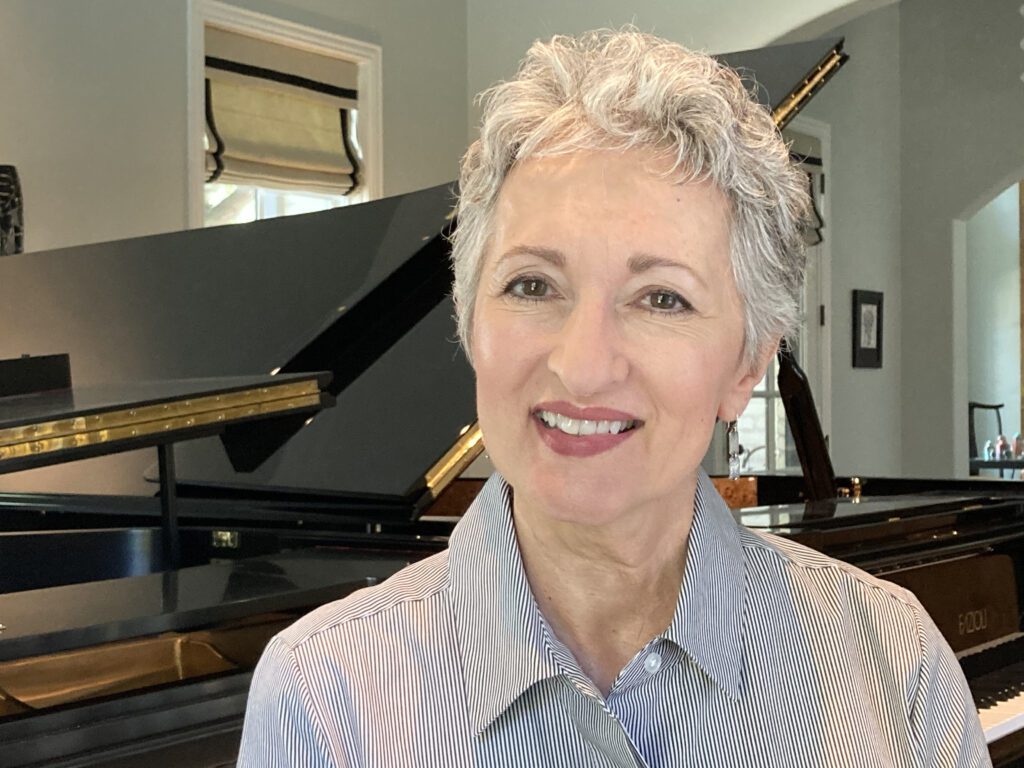
The conventional octave is 6.5 inches wide.
There are two standard alternate sizes in the Donison Steinbuhler Standard:
Additionally, other keyboard manufacturers have recently produced keyboards with an octave width of approximately 6.2 inches.
The size of the key has no bearing on the sound, since the hammers are exactly the same. Therefore the only mechanical effect on tone would be how one has each action’s hammers voiced. However, a person with a small handspan is able to produce a bigger tone using a narrower keyboard because they are able to deliver more force with their more compact hand.
I think it’s ideal for a young student! I did this with the young pianist Aaron Kurz, now a graduate of the Yale School of Music. He studied with me on both the conventional and DS5.5 keyboard for several years starting at age 9, until his hands were almost fully grown. I believe that being able to play challenging repertoire at a young age was a key to Aaron’s phenomenal piano technique.
My students and I find that it is relatively easy for us to go back and forth between the sizes on the spot, since some of us have our hands on both keyboards daily. It’s important to note that countless pianists have reported improvements in their playing on the conventional piano keyboard after practicing on a narrower keyboard.
That said, I generally practice specific repertoire on whichever size keyboard will be used in my upcoming performance.
Also, if you have a keyboard action made for a grand piano by Yamaha, you can travel with that action and place it in another Yamaha of a similar size and model, and it will fit well.
On average it takes no more than 10–15 minutes to feel very comfortable on the DS6.0 and about 40 minutes for the DS5.5. Your brain will learn this flexibility and after that it will take virtually no time at all.
For the very quickest initial adjustment time, look at your hands when trying out the keyboards rather than looking at a score, and begin by playing octaves and large chords slowly.
Great questions! All of those answers are correct, especially access! The DS Standard Foundation is now lending actions with narrower keyboards to universities and conservatories world-wide at no cost (except shipping). You may contact me for more information.
For more on this important topic of acceptance, please see the Pianists for Alternatively Sized Piano Keyboards website.
Click here to sign the global petition to piano manufacturers.
There are several manufacturers globally. All of our keyboards at SMU Meadows School of the Arts were manufactured by David Steinbuhler in Pennsylvania. DS Standard Foundation website.
Steinway will also now provide a special-order custom keyboard for particular models of their grand pianos, or they will retrofit your own Steinway.
High-quality digital pianos with narrower keys are in development at the prototype stage from at least two manufacturers. Watch for them to be available to the general market very soon!
Joseph Hoffman and Daniel Barenboim both played on narrower keyboards in past concerts.

Please film video in portrait mode (a selfie video is perfect!). Videos should not exceed 60 seconds. This video will be posted to invite our community to ask you questions.
Example script: “Hi Piano Inspires community, I’m [name] and I am thrilled to chat with you about [topic]. Please submit your questions by replying to this post. I look forward to answering your questions– in the meantime, [you can watch my video about x, sign up for my webinar titled y, check out my article titled z]. Thanks, and looking forward to connecting with you soon!”
You can also include relevant credential information in your question call, just make sure to keep the video to 60 seconds or less!
Translations by Ana Paula Machado Simões
Burning Brightly without Burning Out – By Brenda Wristen, p. 51
Brilhando sem se exaurir – Por Brenda Wristen, p. 51
O esgotamento profissional (burnout) tem sido apontado como o maior risco ocupacional do século XXI, e professores de piano podem estar especialmente sucetíveis. Este artigo discute os fatores relacionados às demandas de trabalho tanto de professores de piano empregados em uma instituição quanto de autônomos que contribuem para a exaustão, sugerindo estratégias para prevenir ou se recuperar do “burnout” através de um engajamento positivo com o trabalho.
Play the Octaves with Two Hands – By Michael Clark, p. 18
Toque as oitavas com as duas mãos – Por Michael Clark, p. 18
Alguns pianistas acreditam que redistribuir notas entre as mãos viola as intenções do compositor e deve ser evitado. Mas e se os próprios compositores tivessem essa prática? Marcações escritas em partituras de alunos e comentários registrados de aulas revelam que tanto Chopin quanto Liszt ocasionalmente aconselhavam a redistribuição de notas entre as mãos nas suas próprias composições para solucionar problemas técnicos e musicais, incluindo evitar grandes alongamentos, facilitar saltos e melhorar o controle de som e articulação. Essas ocorrências de redistribuições por Chopin e Liszt sugerem que tais alternativas eram incontroversas no século XIX e argumentam para a continuidade da aceitação da prática hoje.
Positive Recitals for Young Students: Setting the Stage for Success – By Diane Briscoe, p. 38
Recitais positivos para alunos jovens: criando um ambiente para o sucesso – Por Diane Briscoe, p. 38
Um recital de piano pode ser mágico: um local impressionante com um piano de cauda elegante, crianças bem vestidas e decorações de bom gosto, performances musicais polidas, uma bonita recepção com deliciosos petiscos, crianças felizes e animadas, pais radiantes e uma professora orgulhosa. Isso é o que muitos professores de música desejam para todos os seus alunos. Em um estúdio, no entanto, pode haver pianistas e pais que acham recitais solos formais angustiantes e têm medo que o público os julgue desfavoravelmente. Este artigo sugerirá maneiras como o professor pode preparar o ambiente do recital para ajudar a criar uma experiência mais positiva e bem-sucedida.
Reclaiming an Alternative History: New Piano Music of Florence Price – By Asher Armstrong, p. 8
Reivindicando uma história alternativa: novas músicas para piano de Florence Price – Por Asher Armstrong, p. 8
Florence Price é uma das compositoras estadunidenses mais importantes e significativas do século passado. A atual renascença que envolve a reivindicação e redescoberta de sua grande obra para piano solo está apenas começando. Com a recente publicação de um grande número dessas peças, alunos e pianistas estão começando a perceber a grande parte do “repertório” que eles estavam perdendo. Este artigo pincela um pouco deste repertório recém-publicado, examinando seleções dos Prelúdios, Impromptu, Canções sem Palavras, Lullaby e muitas outras peças de Price.
When the Well Is Dry: Reigniting the Spark for Teaching – By Amy Boyes, p. 45
Quando os recursos se esgotam: reascendendo a chama por ensinar – Por Amy Boyes, p. 45
Professores de música podem se sentir exaustos e esgotados ao final do ano, especialmente após a pandemia do COVID ter desafiado as práticas tradicionais de ensino. Este artigo delineia passos práticos para professores reascenderem o envolvimento emocional necessário para o ensino efetivo e empático.
Where do we Begin – By Moegi Amano, p. 33
Por onde começamos – Por Moegi Amano, p. 33
Quais são os passos concretos para se aprender uma nova peça com sucesso, enfatizando a importância da execução musical e expressiva? Em uma obra musical, há numerosos elementos, incluindo o título, as imagens, e as notas que indicam ritmo e altura. Todos esses elementos trabalham juntos para criar a peça, então qual deles nós priorizamos e focamos primeiro? Ensinar uma nova peça pode ser sufocante e você pode não saber por onde começar. Este artigo irá explorar os passos preparatórios a serem tomados antes de se tocar uma nova peça para que o aluno possa aprendê-la efetivamente.
Translations by Ricardo Pozenatto
A Hummel Treasure Hunt – By Joanne Haroutounian, p. 39
Uma caça ao tesouro de Hummel – Por Joanne Haroutounian, p. 39
Este artigo descreve a jornada pessoal na pesquisa de um concertino para piano de Johann Nepomuk Hummel durante a década de 1980, antes das conveniências da Internet. Desde a primeira vez que ouviu a música em um rádio-relógio, a autora pesquisou na Biblioteca do Congresso e na Biblioteca Britânica, localizando o Concertino para Piano, opus 73. No processo, ela descobriu o principal tratado pedagógico de Hummel que incluía informações abrangentes sobre como ensinar piano em 1800. O volume também incluía um tesouro de peças charmosas de nível intermediário que não estavam prontamente disponíveis. Sua pesquisa levou à publicação do concertino para piano assim como peças miniaturas para piano.
Cécile Chaminade’s Album des enfants: A Treasure-trove of Teaching Pieces for the Intermediate Pianist – By Adrienne Wiley, p. 33
Album des enfants de Cécile Chaminade: Um tesouro de peças de ensino para o pianista intermediário – Por Adrienne Wiley, p. 33
É uma pena que a música para piano de Chaminade tenha sido literalmente varrida para baixo do tapete. Ela, entre outras compositoras, forneceu uma riqueza de composições para o pianista em formação: sua música é pedagogicamente sólida, musical, tecnicamente apropriada e, francamente, bastante convidativa em som e estilo. Sua produção composicional para piano conta com mais de 200 peças. Este artigo tratará das obras encontradas em seu Album des enfants, livros 1 e 2.
Practicing Alongside our Intermediate Students – By Sara Ernst, p. 11
Estudando ao lado de nossos alunos intermediários – Por Sara Ernst, p. 11
Depois que os hábitos fundamentais são estabelecidos durante o estudo elementar, os anos intermediários se tornam um período para adquirir uma caixa de ferramentas de técnicas
práticas. Idealmente, a tarefa semanal de piano fornece ao pianista intermediário um esboço equilibrado do estudo, incluindo aquecimentos, música para diversão pessoal, repertório nos estágios de aprendizagem e repertório que está sendo aprimorado para execução. A preparação para o estudo em casa ocorre durante a aula de piano, de forma que o professor orienta a prática em todas as aulas e frequentemente pede ao aluno que demonstre estratégias específicas. Por meio do uso de abordagens pedagógicas essenciais, os professores podem levar seus alunos a uma maior independência e prontidão para a performance.
Teaching Contemporary Piano Techniques to Intermediate Piano Students with Alexina Louie’s Star Light, Star Bright – By Lynn Worcester Jones, p. 17
Ensinando técnicas contemporâneas de piano para alunos de piano intermediários com Star Light, Star Bright de Alexina Louie – Por Lynn Worcester Jones, p. 17
Apresentar aos alunos de piano intermediários as técnicas e estilos composicionais dos séculos XX e XXI é essencial, especialmente à medida que passamos dos alunos da Geração Z para os da Geração Alfa (nascidos no início de 2010). Essas técnicas incentivam os alunos a desenvolver um maior controle rítmico, perceber seu som de maneira diferente, explorar novas liberdades e construir seu maestro interior à medida que absorvem a importância dos valores rítmicos e novas abordagens de tempo e espaço. Este artigo oferece conselhos pedagógicos sobre o ensino dessas técnicas com Star Light, Star Bright de Alexina Louie – um conjunto musicalmente rico e celestial de nove peças pedagógicas de piano solo feitas sob medida para essa finalidade.
The Legacy of Frances Larimer – By Yeeseon Kwon, Gayle Kowalchyk, and E. L. Lancaster, p. 46
O Legado de Frances Larimer – Por Yeeseon Kwon, Gayle Kowalchyk e E. L. Lancaster, p. 46
Quando Frances Larimer faleceu em 21 de outubro de 2021, a comunidade americana da pedagogia do piano perdeu um pioneirismo no campo do piano em grupo, pedagogia do piano e formação de professores de piano. Três ex-alunos e influenciadores da pedagogia refletem sobre a vida de Larimer, o desenvolvimento do programa na Northwestern University e a orientação que se estendeu e deixou um legado duradouro em nosso campo.
The Legacy of Miriam Hyde – By Jerry Wong, p. 25
O Legado de Miriam Hyde – Por Jerry Wong, p. 25
Miriam Hyde (1913-2005) foi uma figura proeminente na vida musical da Austrália por décadas. Compositora, pianista, educadora e jurada frequente, ela se destacou em todas as áreas de sua vida artística. Após estudos no exterior no Royal College of Music em Londres, ela voltou para a Austrália e deu início a uma produção composicional significativa que era frequentemente vinculada ao plano de estudos do Australian Music Examinations Board. Seus trabalhos variam de materiais para leitura à primeira vista a obras de concerto, e uma investigação sobre seu estilo composicional revela níveis iguais de expressividade e intenção pedagógica.
Translations by Ricardo da Silva Pozenatto
Create to Motivate: Using Repertoire to Incorporate Creativity in Lessons – By Chee-Hwa Tan
Criar para motivar: usando o repertório para incorporar criatividade nas aulas – Por Chee-Hwa Tan
A capacidade de experimentar e criar com o nosso instrumento é uma parte importante do estudo do piano. Contudo, incluir atividades criativas como treinamento auditivo, improvisação, transposição, composição musical e análise dentro do tempo de aula pode criar um desafio logístico para os professores. Este artigo explora como tarefas através do repertório podem ser usadas para integrar experimentação e criação nas aulas de piano. O tema é abordado através de uma filosofia de ensino, seleção de repertório, princípios básicos e exemplos práticos. Esta abordagem pode ser utilizada durante as férias, várias vezes por ano, a cada dois meses ou com peças alternadas.
Gabriela Montero: From Advocacy to Artistry—An Interview with Luis Sanchez
Gabriela Montero: da advocacia à arte—uma entrevista com Luis Sanchez, pág. 8
Nascida na Venezuela, Gabriela Montero tocou com muitas das principais orquestras do mundo e se apresentou como recitalista em locais de renome internacional. Seus muitos reconhecimentos incluem prêmios no Concurso Chopin e o Prêmio Internacional Beethoven. No entanto, seu trabalho e impacto não se limitam aos grandes palcos do mundo ou ao estúdio de gravação. Defensora comprometida dos direitos humanos, a Sra. Montero foi nomeada Cônsul Honorária pela Anistia Internacional em 2015, e a Fundação de Direitos Humanos a honrou com um prêmio Trabalho de Destaque no Campo dos Direitos Humanos por seu compromisso contínuo com a defesa dos direitos humanos na Venezuela. Luis Sanchez conversou com Montero sobre sua carreira, seu apoio e defesa a causas, e seus conselhos para aspirantes a músicos.
The Gilmore International Piano Festival: An Engine for Creative Activity – By Pamela D. Pike
O Festival Internacional de Piano Gilmore: um motor para a atividade criativa – Por Pamela D. Pike, pág. 19
O Festival Internacional de Piano Gilmore, em Kalamazoo, Michigan, influencia ambos pianistas profissionais e amadores por meio de sua oferta e desenvolvimento de experiências inspiradoras e de classe mundial ao teclado. O festival de várias semanas é realizado bienalmente, mas o Gilmore também identifica e apoia Artistas Gilmore e Jovens Artistas, oferece programas de educação de piano para músicos iniciantes de todas as idades na região e garante que novas músicas para teclado sejam encomendadas e executadas regularmente. Em comemoração ao Festival International de Piano Gilmore 2022, este artigo explora as muitas facetas do Gilmore e como o trabalho impacta a comunidade.
The Seven Types of Rest: Strategies for Recovery – By Paola Savvidou
Os sete tipos de descanso: estratégias de recuperação – Por Paola Savvidou, pág. 44
Este artigo convida os leitores a imaginar uma vida cotidiana em que reservamos tempo para descansar. O descanso nos permite parar de “fazer” e simplesmente “ser”. Por meio de descanso físico, pausas mentais, descanso sensorial, descanso criativo, descanso emocional, descanso social e descanso espiritual, os leitores podem explorar maneiras de ensinar e criar a partir de um local de descanso ao invés de exaustão.
Undefined by Hearing Loss: My Career in Music – By Cherisse W. Miller
Indefinido pela perda auditiva: minha carreira na música – Por Cherisse W. Miller, pág. 37
Ser capaz de ouvir nos ajuda a sentir incluídos em conversas e em sons compartilhados. Quando perdemos parte da audição, o som é diminuído ou até mesmo eliminado completamente, comprometendo a forma como entendemos o mundo ao nosso redor. Com boa atitude e determinação, pode-se aprender a conviver com a perda auditiva e até mesmo ter uma carreira de sucesso na música. Neste artigo, a autora explora sua experiência com a perda auditiva e fornece informações sobre como os professores podem ajudar as pessoas com perda auditiva a se envolverem na produção e no aprendizado da música.
Translations by Luis Sanchez
Burning Brightly without Burning Out – By Brenda Wristen, p. 51
Como trabajar duro sin agotarse – Por Brenda Wristen, p. 51
El agotamiento ha sido referido como el mayor riesgo laboral del siglo XXI, y los profesores de piano pueden ser especialmente susceptibles. Este artículo analiza los factores que contribuyen al agotamiento en relación con las demandas laborales de los profesores de piano tanto institucionales como privados, y sugiere estrategias para prevenir o recuperarse del agotamiento a través de un compromiso laboral positivo.
Play the Octaves with Two Hands – By Michael Clark, p. 18
Ejecución de octavas con dos manos – Por Michael Clark, p. 18
Algunos pianistas creen que redistribuir notas entre las manos viola la intención del compositor y debe ser evitado. ¿Pero que sucedería si los mismos compositores fueran los que lo hacen? Las anotaciones en las partituras de los estudiantes y los comentarios registrados en las lecciones revelan que tanto Chopin como Liszt ocasionalmente aconsejaron redistribuir las notas entre las manos en sus propias composiciones para resolver problemas técnicos y musicales, ya sea para evitar extensiones amplias, facilitar los saltos y mejorar el control del sonido y la articulación. Estos hechos documentados de las redistribuciones de Chopin y Liszt sugieren que tales alternativas no eran controvertidas en el siglo XIX y abogan por la aceptación continua de la práctica en la actualidad.
Positive Recitals for Young Students: Setting the Stage for Success – By Diane Briscoe, p. 38
Recitales positivos para jóvenes estudiantes: Como preparar el escenario para el éxito – Por Diane Briscoe, p. 38
Un recital de piano puede ser mágico: un lugar impresionante con un elegante piano de cola; niños bien vestidos y adornos de buen gusto; actuaciones musicales pulidas; una hermosa recepción con deliciosos refrigerios; niños felices y emocionados, padres radiantes y una maestra orgullosa. Esto es lo que muchos profesores de música desean para todos sus alumnos. En un estudio, sin embargo, puede haber algunos jóvenes pianistas y padres que encuentren estresantes los recitales formales y temen que el público los juzgue desfavorablemente. Este artículo sugiere formas en las que el profesor puede configurar el entorno del recital para ayudar a crear una experiencia más positiva y exitosa.
Reclaiming an Alternative History: New Piano Music of Florence Price – By Asher Armstrong, p. 8
Recuperando una historia alternativa: nueva música para piano de Florence Price – Por Asher Armstrong, p. 8
Florence Price es una de las compositoras estadounidenses más importantes y significativas del siglo pasado. El renacimiento en curso que se enfoca en la recuperación y redescubrimiento de su gran producción para piano es solo el comienzo. Con la publicación muy reciente de un gran número de estas obras, los estudiantes y pianistas comienzan a aprender qué gran parte del “repertorio” se estaban olvidando. Este artículo es una introducción a parte de este repertorio recién acuñado, y analiza obras como los Preludios de Price, Impromptu, Canciones sin Palabras, Lullaby y muchas otros.
When the Well Is Dry: Reigniting the Spark for Teaching – By Amy Boyes, p. 45
Cuando el pozo está seco: Como reencender la chispa por la enseñanza – Por Amy Boyes, p. 45
Los profesores de música pueden sentirse agotados y exhaustos al final del año, especialmente después de que la pandemia de Covid desafió las normas tradicionales de enseñanza. Este artículo describe pasos prácticos para que los maestros reactiven la participación emocional necesaria para una enseñanza eficaz y empática.
Where do we Begin – By Moegi Amano, p. 33
Por dónde empezamos – Por Moegi Amano, p. 33
¿Cuáles son los pasos concretos para aprender una nueva pieza con éxito, que enfatiza la importancia de la musicalidad y la interpretación expresiva? En una pieza musical, hay numerosos elementos, incluido el título, las imágenes y las notas que indican el ritmo y el tono. Todos estos elementos trabajan juntos para crear la pieza, entonces, ¿cuál priorizamos y en cuál nos enfocamos primero? Enseñar una pieza nueva puede resultar abrumador y es posible que no sepa por dónde empezar. Este artículo explorará los pasos preparatorios a seguir antes de tocar una nueva pieza para que el estudiante pueda aprenderla de manera efectiva.